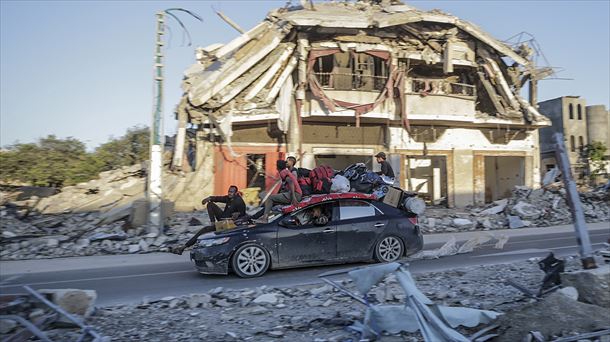Russia wants to clean up what it sees as a “historical injustice” and is now demanding that the siege of Leningrad (modern-day St. Petersburg) by German forces in World War II be recognized not only as a war crime, but also as genocide.
The German side is accused of a so-called “adversarial approach” to the past: German crimes from the colonial era are recognized as genocide, but the National Socialist crimes against the peoples of the Soviet Union in World War II are not. “The Russian side insists on official recognition of such atrocities by the Third Reich as genocide,” the country said in a diplomatic note to the Foreign Ministry in Berlin.
About 1.1 million people were killed during the nearly 900-day siege of the northern Russian city by the Wehrmacht and its allies between 1941 and 1944. Countless civilians died of hunger or froze to death.
Russians see ‘ethnic discrimination’
“The blockade of Leningrad was a terrible war crime that the German Wehrmacht brought on Leningrad and its people,” the Foreign Ministry said. The federal government has emphasized this several times and stands by this legal advice. On the 80th anniversary of the end of the blockade in January, the German embassy in Moscow commemorated the victims with several events.
The Russian Foreign Ministry is again annoyed by the fact that Germany only pays individual compensation to Jewish victims of the blockade. “The Russian side considers such a practice on the German side as ethnic discrimination,” TASS quotes from the note. Victims of all nationalities must be compensated – that is the demand.
Germany speaks of paid reparations
Germany justifies the different treatment by saying that Soviet Jews were exposed to special pressures of persecution because of National Socialist racial policies. The compensation for the other victims was paid with the reparations paid from Germany after 1945.
Source: Krone
I am Wallace Jones, an experienced journalist. I specialize in writing for the world section of Today Times Live. With over a decade of experience, I have developed an eye for detail when it comes to reporting on local and global stories. My passion lies in uncovering the truth through my investigative skills and creating thought-provoking content that resonates with readers worldwide.



